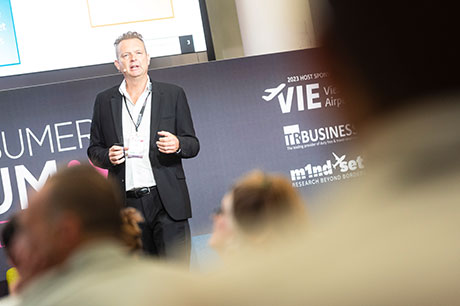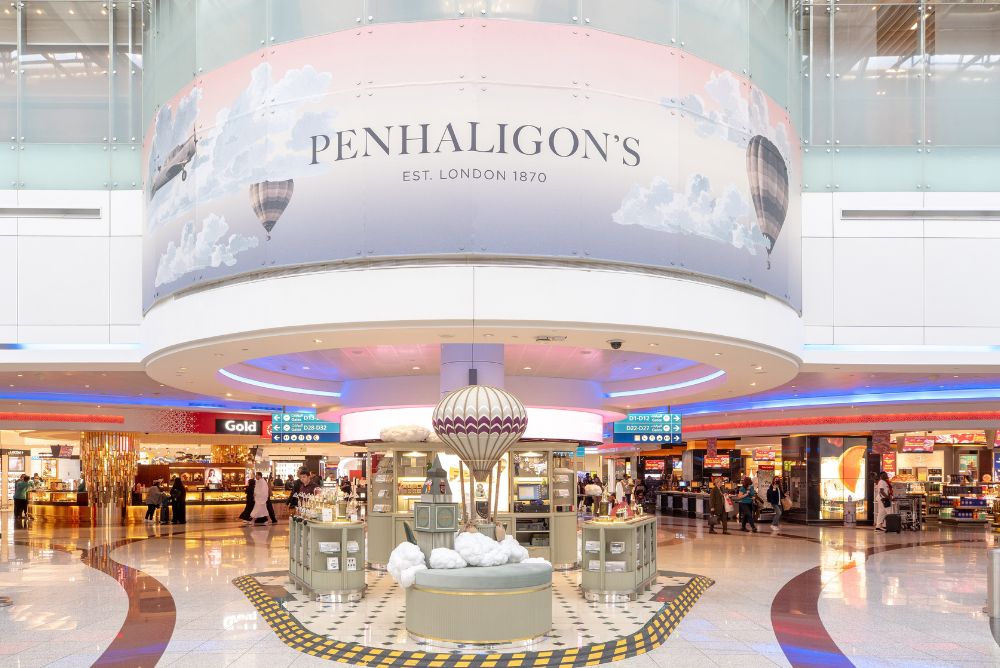Dublin Intl Airport vows to become a leader in sustainable airport operations
By Andrew Pentol |

Changes to Dublin Airport Terminal 1 will generate a significant improvement in the terminal’s energy efficiency.
Dublin Airport has pinpointed sustainability as a critical pillar in its overall strategy and that of daa Group.
Speaking candidly to TRBusiness, Vincent Harrison, Managing Director, Dublin Airport revealed details of a clear and simple sustainability plan. This encompasses key priority areas impacting how the airport operators interact with the environment now and in the future.
“Our ambition at Dublin Airport, is to go beyond merely meeting environmental compliance obligations, by becoming a leader in sustainable airport operations.
“We have a number of long-term and ambitious environmental sustainability targets, such as becoming net zero in carbon emissions by 2050 at the latest.
“Our commitments across key pillars are all part of the overall picture towards fulfilling this overarching ambition. There are seven priority areas for us which are carbon, energy, waste, water, noise, air quality and biodiversity.”
The airport’s plans range from short-term actions on issues such as low-emission vehicles, plastics and waste, to longer-term actions on issues such as carbon and energy management.
LONG-TERM PROGRESS ‘LESS VISIBLE’
Harrison commented: “Progress on the long-term issues will be less publicly visible to passengers, staff and the wider community in the airport’s environs, but are critical to delivering substantive changes to our overall environmental impact, particularly in relation to addressing the carbon and energy footprint of the airports.
“It is recognised that in many cases some of the short-term actions may require relatively little capital investment. In contrast, long-term measures could require substantial capital investment, as well as considerably more communication and planning.”
On the retail front, Dublin Airport and duty free operator Aer Rianta International (ARI) work together across a wide range of areas including sustainability. “The targets that each business has in relation to sustainability are complimentary and the wider campus targets that we have on areas such as energy-use and waste include the on-campus operation of ARI’s retail outlets at Dublin Airport.”
Single Use Plastics (SUPs) is among the airport’s key sustainability focuses. These include the use of SUPs in plastic bags across The Loop retail operations, the use of SUP cups at water stations in staff and visitor areas and opportunities to provide passengers and staff with alternatives to plastic water bottles.
“We are moving away from single-use plastic in relation to the bags used in ARI’s outlets at Dublin Airport. The next order of bags for The Loop will specify that the bags in question are 100% recyclable and made from recycled materials.”
As reported yesterday (14 April 2021), ARI updated its environmental, social and governance strategy in line with the marked change in consumer behaviour driven by Covid-19 and the organisation’s intention to develop a more conscious shopping offering.

Last year, Dublin Airport created wildflower meadows at three key locations including the green space in front of Terminal 2.
Discussions have also taken place with the airport’s food and beverage operations regarding the elimination of single-use plastic materials in airport restaurants and shops and replacement of these materials with compostable equivalents.
“The first food and beverage operators started using compostable-only materials in February 2020. All contracts will require the sole use of compostable consumables by 2022, emphasised Harrison. “Our target is that compostable packaging will be used by all food and beverage outlets at Dublin Airport by 2023.”
This year, Dublin Airport will continue working towards its key medium and long-term targets in relation to carbon, energy, waste, water, air quality and other areas. Harrison explained: “Last year, we created new wildflower meadows at three key locations, most notably the green space in front of Terminal 2. The aim was to encourage biodiversity on the airport campus.
“These meadows attract bees, butterflies and other wildlife. We also plan to expand out wildflower programme this year.”
As Dublin Airport continues on its sustainability journey, its achievements so far must not be underestimated.
CARBON NEAUTRAL AIRPORT
Last year it was designated a carbon neutral airport, because the first in Ireland to achieve this. This followed an extensive programme of activities to reduce and offset its carbon emissions in recent years.

Pat O’Doherty, Chief Executive, Electricity Supply Board and (pictured left) and Dalton Philips, daa, Chief Executive at Dublin Airport’s solar farm.
“Dublin Airport was designated as carbon neutral by the global Airport Carbon Accreditation programme, which is a global carbon management certification programme for airports.
“The programme independently assesses and recognises the efforts of airports to manage and reduce their carbon emissions. The accreditation was based on data from 2019, so it did not take account of the fall in traffic in 2020 due to the Covid-19 pandemic.
“Dublin Airport reduced its carbon footprint by 12% between 2018 and 2019 and decreased overall carbon emissions by 25% between 2013 and 2019. This was despite a 63% rise in passenger numbers during the same period.”
A range of energy management measures have been introduced in recent years, which allowed the airport monitor and improve its overall energy-use across the campus. Measures include the use of building management systems, installation of efficient LED lighting and a pilot solar farm project.
In 2019, Dublin Airport reduced its energy consumption levels by 48% compared to average consumption levels between 2006 and 2008.
Harrison commented: “Reaching carbon neutrality is an important milestone for the airport, but we plan to go much further. We intend to reduce our overall energy consumption by a further 30% by 2030.
“Our future plans include moving all our light vehicle fleet to low emission vehicles by 2024 and building a second solar farm on campus, with the potential to generate up to 7.5 megawatts of power.”

Automatic Docking Guidance Systems have been installed on all aircraft contact parking stands at Dublin Airport.
Regarding water usage, Dublin Airport has worked to reduce potable water consumption in recent years, achieving a 58% reduction on a per passenger basis in the 10 years to 2019.
Harrison recalled: “In partnership with Electricity Supply Board (ESB), Ireland’s largest electricity generating company, we built a solar farm on top of the airport’s reservoir system.
“The 268 solar panels installed at the site provide about 60% of the reservoir’s annual energy requirements. The solar panels are connected directly to the airport’s reservoir system which provides 500 million litres of water — the equivalent of 200 Olympic sized swimming pools — to both passenger terminals and services all the offices and businesses on the airport campus.
“This project was an excellent opportunity for Dublin Airport to gain technical knowledge of how solar photovoltaic installations can work at the airport. We were able to work in tandem with ESB as part of a collaborative agreement that we have with the company.”
DROP IN ENERGY CONSUMPTION
Last year, Dublin Airport lost 25.5 million passengers due to Covid-19. This was a 78% decline on the previous year. The downturn in passenger operations resulted in a 21.3% drop in energy consumption compared to 2019.
“Within our sustainability strategy, we want to rebuild our future in a sustainable manner,” Harrison emphasised. “We plan to install up to a 7.5 megawatt peak solar photovoltaic farm and a new battery storage system. Other energy projects will also help meet our targets and reduce reliance on non-renewable energy sources.”

Aer Rianta International, which released its environmental, social and governance strategy yesterday (14 April), is moving away from single-use plastic bags in its Dublin Airport stores.
Changes to T1 will also generate a significant improvement in the terminal’s energy efficiency. Under the plans submitted to Fingal County Council — the local planning authority for the airport — the core façade and terminal roof are to be replaced with a new structure.
The changes will generate a significant improvement in the terminal’s energy efficiency, as it will move the upgraded elements of the building from their current Building Energy rating of F to B3.
“The terminal’s new façade exceeds current energy guidelines by 25%. As part of the planned works, the Terminal 1 roof will be insulated to the highest standards, thus significantly reducing heat loss from the building,” Harrison concluded.
See the Sustainable Airports report in the TRBusiness April e-zine for further insights from Vincent Harrison, Managing Director, Dublin Airport.
Nuno do Amaral, Chief Operations & Business Development Officer, ARI will be part of the Lead by Example: Sustainable Investments from Industry Leaders session on day two of Travel Retail Sustainability Week (19-23 April).
Tracy Ross, Projects and Design Manager Aer Rianta International Middle East, will also participate in the day three session entitled Back to the drawing board: How Sustainability is forging powerful new partnerships.
Alcohol insights: Conversion up, spend down in Q4
Conversion of visitors in the alcohol category in duty free has risen to 54% in Q4 2023,...
Heinemann Asia Pacific makes breakthrough in New Zealand at AKL
Heinemann Asia Pacific is set to enter the New Zealand market with three new retail concepts at...
Men buy and spend more in travel retail says new research by m1nd-set
Men have a higher conversion rate and spend more when shopping in travel retail, says new...
-
 Sustainability News,
Sustainability News,Alcohol insights: Conversion up, spend down in Q4
-
 Sustainability News,
Sustainability News,Heinemann Asia Pacific makes breakthrough in New Zealand at AKL
-
 Sustainability News,
Sustainability News,Men buy and spend more in travel retail says new research by m1nd-set

In the Magazine
TRBusiness Magazine is free to access. Read the latest issue now.

 Trbusiness. The travel retail Trbusiness. The magazine for global retail and duty free professionals.
Trbusiness. The travel retail Trbusiness. The magazine for global retail and duty free professionals.






















